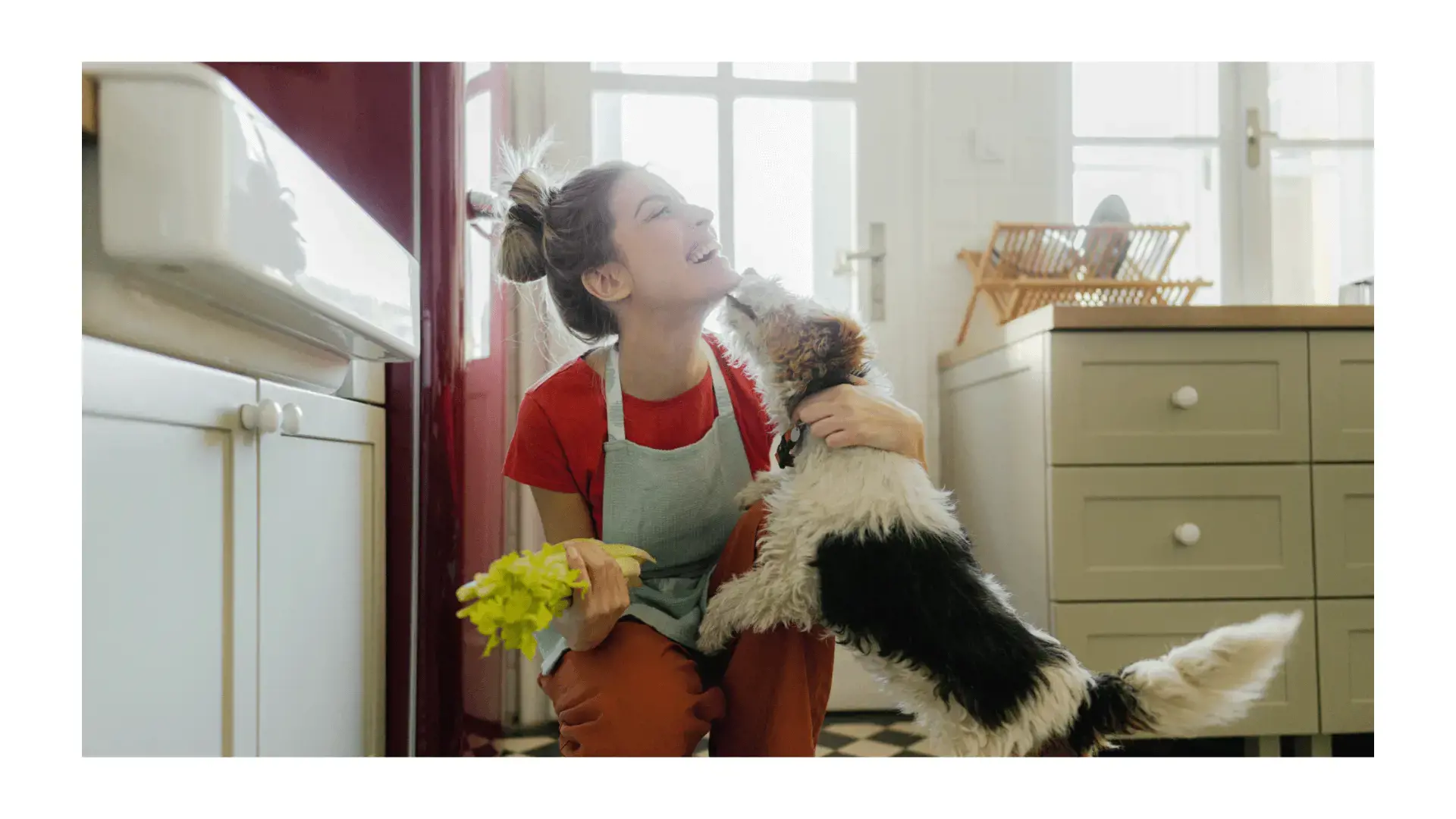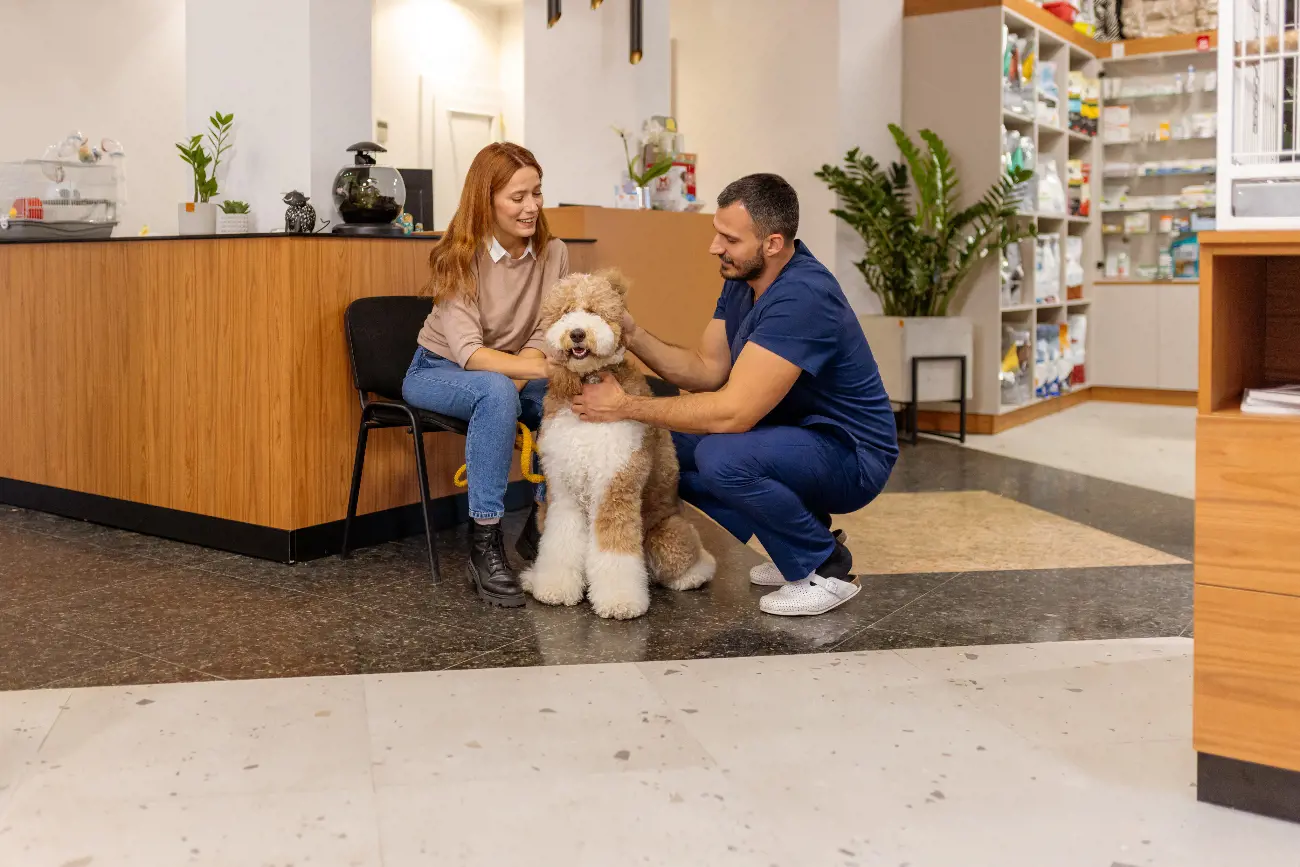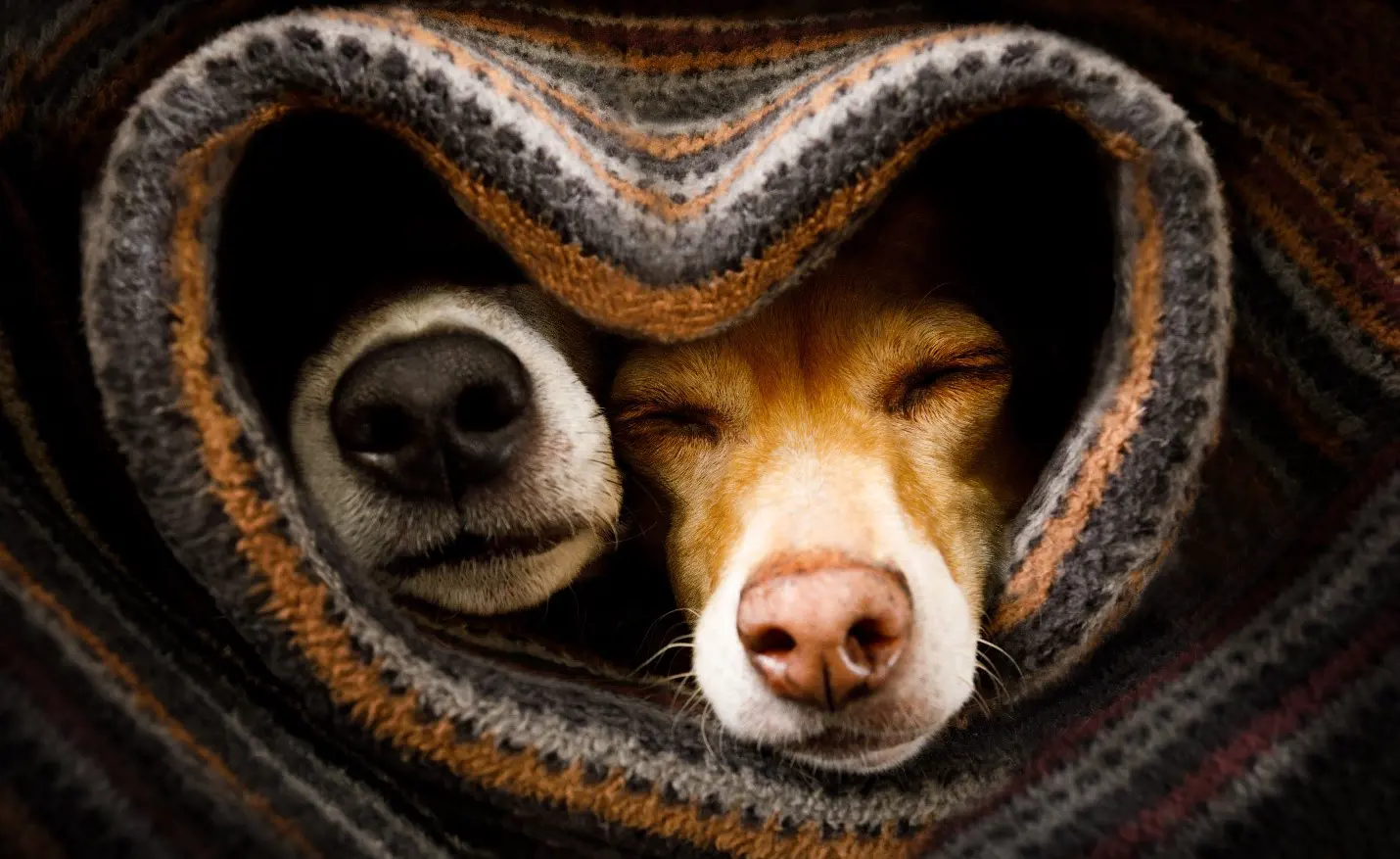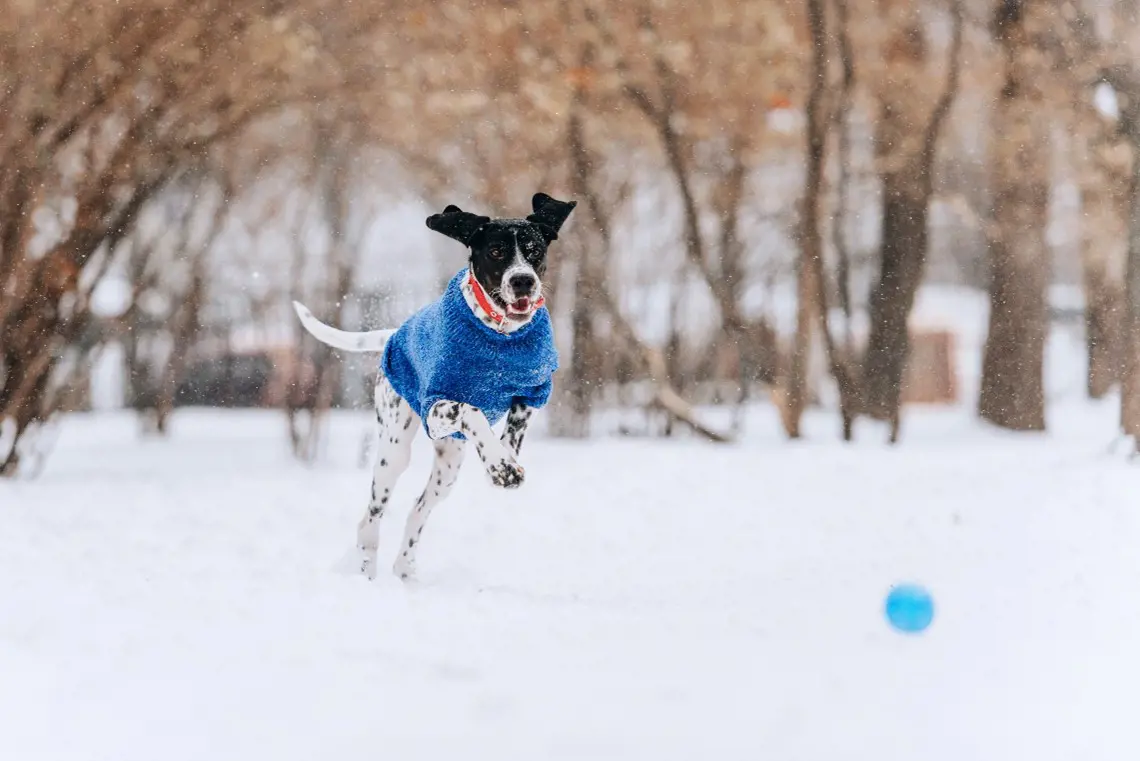Cook for your Pet Day!
29th October, 2025

1st November is National Cook for Your Pets Day! What better excuse to cook up a storm to show your furry friend some extra love and care.
While store-bought pet food provides essential nutrients, cooking for your pets can be a great way to bond and ensure that they enjoy a healthy, tasty meal.
We have put together a few different ways you can celebrate!
- Research Pet-friendly ingredients
Before you start cooking for your pets it’s vital to understand which ingredients are safe and beneficial for your pet. Dogs and cats have different dietary needs, so make sure to focus on recipes suitable for each species. For dogs, lean meats like chicken and turkey are great protein sources, while cats may prefer fish such as salmon or tuna.
- Choose nutrient-rich recipes
Select recipes that offer a well-balanced mix of nutrients for your pets. For dogs, you can prepare homemade dog food using cooked meat, brown rice, and a variety of vegetables like carrots and peas. Cats may enjoy a fish-based recipe with added vitamins and minerals.
- Get creative with treats
National Cook for your Pets Day is a perfect opportunity to create special homemade treats. Bake some dog-friendly biscuits or whip up some feline-approved catnip snacks. Homemade treats can be a healthier alternative to store-bought ones.
Why not try this biscuit recipe
Dog Friendly Oat Biscuits
Ingredients:
- 100g Oats
- 1 Banana (Mashed)
- 40g Fresh blueberries (Chopped)
- Some water
Method:
- Pre-heat your oven to 175 °C
- Mix the banana, oats, and blueberries- adding splashes of water until it combines into one large ball
- Roll out the mixture so it’s roughly 1-2cm thick and cut out any shapes you fancy using a cutter or butter knife
- Pop the shapes on a lined baking tray and bake for 15-20 minutes, until slightly browned
- Leave to cool
- Plate up your pup’s new favourite snack, pop the kettle on and get comfy!
Source: Dog-friendly oat biscuits recipe | Dogs Trust
Share the Joy
Cooking for your pets can also be a family affair. Involve your kids or other family members in the process, helping them understand the importance of responsible pet ownership and how to care for their four-legged friends.
What foods can my dog eat?
Fruits and vegetables
Some fruits and vegetables such as grapes are poisonous to dogs, so it's important to get to know which are safe for your dog to eat. While some fruits and veg are safe for your dog, they should only be fed as an occasional treat, alongside a balanced diet.
While fruit and vegetables are a good source of vitamins, minerals and fibre, they should only make up a small amount of your dog’s daily diet. If you are unsure about how many fruits and vegetables your dog should eat, speak to your vet.
Fruits that are safe for your dog
- Apples - Apples are a fantastic addition to your dog’s diet. They provide vitamin A, vitamin C and dietary fibre. They also provide a way to keep your dog’s teeth clean and can help freshen their breath. But before you feed apples to your dog, always remove the core and the seeds. The seeds contain a low amount of a toxin called cyanide, which gets released when chewed. While it's important to be cautious with apple seeds, swallowing a couple of seeds is unlikely to cause problems.
- Strawberries - Dogs can eat strawberries and most dogs enjoy them. They are a great source of vitamin C, potassium and manganese – all of which play vital roles in supporting your dog’s immune system.
- Oranges - Dogs can eat oranges, but they are high in sugar and should be fed in moderation. You should also avoid feeding the orange peel as this can upset your dog's stomach. Oranges provide a source of vitamin C, which is great for your dog’s health and helps to fight off any toxic substances in your dog’s digestive system.
- Tomatoes - Dogs can safely eat tomatoes, but they cannot eat the leaves, stems or young, green tomatoes. This is because they contain a toxin called solanine, which can be poisonous if eaten in large amounts. If your dog does consume these parts of a tomato, monitor them carefully for signs of poisoning.
Vegetables that are safe for your dog
- Peas - Green peas are a completely safe and delicious addition to your dog’s meals. They are rich in protein, vitamins A, B1, B6, C and K, minerals and dietary fibre. They are also easy to feed to your dog, as they can be eaten frozen or steamed.
- Sweet Potato - These root vegetables produce one of the best dietary sources of vitamin A, which can help to support your dog's immune system. They are also rich in fibre, which helps their digestive system, and they contain essential nutrients such as vitamin C and B6, potassium, calcium and iron. You can include sweet potatoes in your dog’s diet in small amounts (boiled or steamed).
- Green beans - Beans are safe to feed to your dog, but because they are high in fibre, they can cause flatulence (gas) to build up in your dog's tummy. Green beans are more digestible if they are fed cooked. Uncooked dried beans, such as kidney beans, are just as toxic to dogs as they are to people and should be avoided.
- Carrots - Carrots make a great snack and are a natural dental stick for your dog to chew on. They are high in fibre and low in calories, making them a perfect treat.
- Cabbage - All varieties of cabbage are not only tasty to your dog, they are also very healthy. Cabbage helps your dog’s digestive system and is good for their skin. It can cause flatulence (gas) in dogs, so remember to feed cabbage in small amounts, and introduce it into their diet slowly.
- Potatoes - Cooked potatoes are fine to feed your dog. A simple baked potato works best, as potatoes cooked in oil will add calories to your dog's diet. Raw potatoes, or potato with green skin, should be avoided, as they contain a toxin called solanine, which can cause an upset tummy.
Meat
Chicken, beef, turkey, venison – the list goes on. They all contain proteins and vitamins, plus your pup will go head over paws for their flavours too. If you’re giving a bit of meat as a treat, always offer it cooked, but avoid adding condiments or seasoning.
Cheese
Dogs are known to enjoy the occasional slice of cheese (cheese tax anyone?). So, if you want to reward your dog for their good behaviour, they’ll be happy that you picked cheese as their treat. Be careful not to go overboard though, as cheese is high in fat and its dairy content might not sit well with lactose-intolerant pups. As always, check with your vet before sharing a block of cheese with your four-legged friend.
Eggs
Although it is not recommended to feed your dog eggs every day, they do make a great nourishing treat every once in a while. Hard boiled eggs are usually the best way to let your pet enjoy this popular human food. Cut the egg into chunks and mix it up with their usual meal. Remember to avoid raw eggs though, as these come with the risk of bacteria such as Salmonella.
What foods can’t my dog eat?
- Alcohol: The smell of certain alcoholic drinks appeals to some dogs, but even the smallest sample can cause a range of symptoms from vomiting, disorientation, tremors and to death in case of severe intoxication left untreated.
- Avocado: You might enjoy a bit of avocado on toast, but the entire plant, including the fruit and seed, contains a compound called Persin, which is toxic too.
- Caffeine: As a human, you drink coffee as a stimulant. The substance affects your nervous system and heart, and a small sip by your pooch could make them feel very sick. If they get into your jar of coffee grounds, it can cause increased heart rate, excitability or lethargy – it may prove fatal if ingested at a high dose.
- Chocolate: Most experienced pet owners know the damage this human treat can do to their dogs. Cacao seeds contain methylxanthines and are toxic to canines. In extreme cases, your pet may suffer tremors, seizures, and even death.
- Citrus fruits: Every part of these zesty fruits is bad for pooches and eating a large amount could mean your pet develops central nervous system depression.
- Cooked bones: They splinter inside your tum and can eventually cause fatal perforation in their stomach.
- Grapes: Another famed food that poisons canines is grapes. Quickly after consumption, your pet may suffer liver damage and kidney failure. Raisins – the dried version of a grape – hide in many cereals and biscuits, making it easy to give them to your dog by mistake.
- Nuts: A handful of nuts for your pet at the pub might seem like a generous gesture, but they can experience a host of stomach issues as a result. Macadamia nuts are especially bad and affect your dogs nervous system.
- Onion and garlic: What might seem like harmless cooking ingredients are toxic to dogs because of the thiosulphate compound. They may experience anaemia and red blood cell damage because of being fed food with these hidden dangers in the sauce.
- Raw meat and eggs: Salmonella and E. coli both pose a threat to your pet from these foods, which could make them seriously ill. Hence this applies to raw bone too
- Salt: You know salt is bad, and it can cause sodium poisoning in your dog. They may experience vomiting, depression, and seizures as a result.
- Xylitol: If you try to avoid sugar, you may find your food is packed with this sweetener. Unfortunately, if your dog finds your treats, it could prove fatal.
- Blue Cheese & Mouldy food: These are toxic to pets and can lead to tremors.
If you think you pup has eaten something they shouldn’t or have concerns about your pet's symptoms, no matter how serious they seem, it's always best to seek advice from a vet or call the Animal Poison Line on 01202 509 000.
Helpful Pages
Recent Posts

How to groom your cat properly
09/01/26Pet Insurance Quote
- 98% claims paid *
- Claims paid directly to vets
- 24/7 vet video consultations
- Interest free monthly payments



